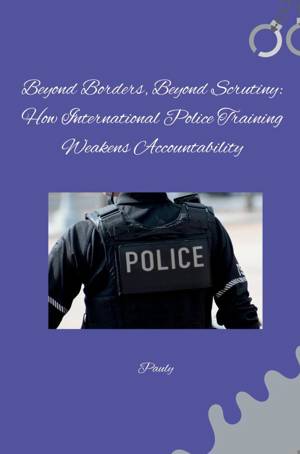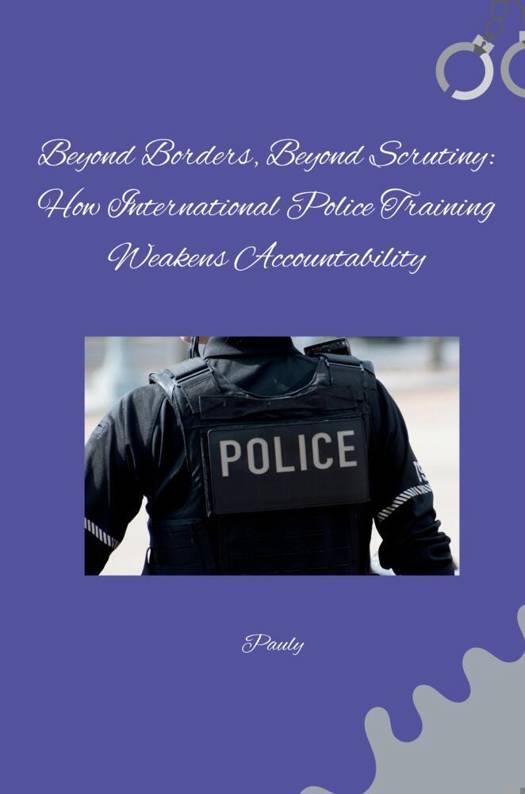
- Afhalen na 1 uur in een winkel met voorraad
- Gratis thuislevering in België vanaf € 30
- Ruim aanbod met 7 miljoen producten
- Afhalen na 1 uur in een winkel met voorraad
- Gratis thuislevering in België vanaf € 30
- Ruim aanbod met 7 miljoen producten
Zoeken
Beyond Borders, Beyond Scrutiny
How International Police Training Weakens Accountability
Pauly
Paperback | Engels
€ 29,45
+ 58 punten
Omschrijving
Domestic oversight structures, such as civilian review boards and independent police complaints authorities, play a vital role in ensuring police accountability. International training programs often operate outside these frameworks, creating a gap in oversight. Officers who are trained in aggressive tactics or interrogation techniques may not face repercussions for misconduct if their actions fall outside the scope of domestic guidelines. For example, a police officer from a country with limited restrictions on stop-and-frisk tactics might be trained in the US on similar techniques. Upon returning home, the officer might continue to employ these tactics excessively, violating local laws and eroding public trust. Since the training occurred abroad, domestic oversight bodies might be ill-equipped to address the issue.
Specificaties
Betrokkenen
- Auteur(s):
- Uitgeverij:
Inhoud
- Aantal bladzijden:
- 284
- Taal:
- Engels
Eigenschappen
- Productcode (EAN):
- 9783384274410
- Verschijningsdatum:
- 28/06/2024
- Uitvoering:
- Paperback
- Formaat:
- Trade paperback (VS)
- Afmetingen:
- 152 mm x 229 mm
- Gewicht:
- 417 g

Alleen bij Standaard Boekhandel
+ 58 punten op je klantenkaart van Standaard Boekhandel
Beoordelingen
We publiceren alleen reviews die voldoen aan de voorwaarden voor reviews. Bekijk onze voorwaarden voor reviews.











